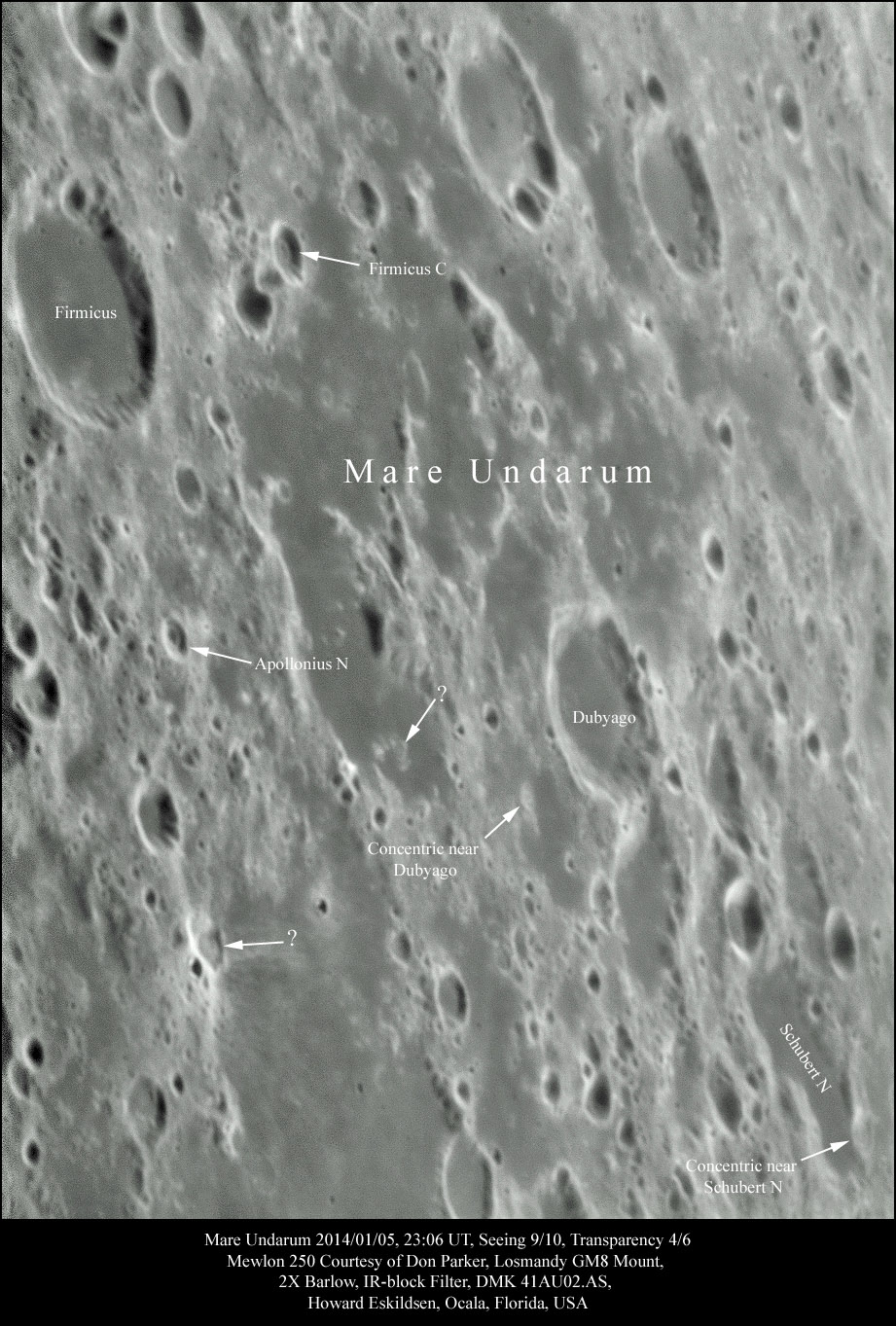June 24, 2024
Four with One Shot
Originally published March 8, 2014

image by Howard Eskildsen, Ocala, Florida
Mare Undarum; is there a more forgettable name or place on the Moon? I took this photo with low expectations. After all what of interest could be there? Then I noticed the concentric crater, Apollonius N. I had been aware of its location while preparing a paper for last year’s ALCON convention. Then it dawned on me that other concentrics were in the general area. I began searching, and sure enough, the concentric craters near Schubert N and by Dubyago were also visible on the same frame. Then the obvious concentric crater Firmicus C popped into view. It had not been on my list of craters for the ALCON presentation; how did I miss it? Closer scrutiny of the area along with some internet surfing, plus a little reviewing of the LROC ACT-REACT QuickMap revealed two other possible concentric craters which are marked by arrows with question marks. Wow! There are four concentric craters in a single high-resolution frame plus two other possible concentric craters. Mare Undarum has turned out to be quite an interesting place after all. Concentric craters have much shallower depths than normal craters of similar size and appear to have been modified by pressures under the surface that elevated their floors and created the inner rim or toroid. Close scrutiny of the QuickMap hints that other small craters in the area also have had their original depths and interiors modified without the development of the inner toroid. It makes me wonder if concentric craters are only part of a spectrum of craters of similar size and age that were modified by volcanic intrusion some time after their formation.
Howard Eskildsen
Related Links
21st Century Atlas chart 2.
Yesterday's LPOD: Open Moons
Tomorrow's LPOD: Xquisite
COMMENTS?
Register, Log in, and join in the comments.



